China puts its stamp on global governance at G20 Summit
Updated: 2016-09-06 07:25
(China Daily)
|
||||||||
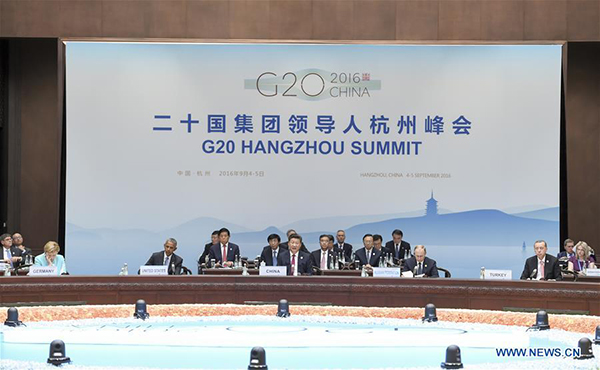 |
|
Chinese President Xi Jinping presides over the opening ceremony of the Group of 20 (G20) summit in Hangzhou, capital of east China's Zhejiang Province, Sept 4, 2016. [Photo/Xinhua] |
The ceremonies, handshakes, meetings and speeches, banquets and performances of this year's G20 Summit have now come to an end.
In fact, they ended on Monday after the leaders of the world's 20 major economies met in Hangzhou, East China's Zhejiang province, and a long list of agreements were signed.
But these were not the be-all and end-all of the 2016 G20, as it is likely to have a lasting legacy in international relations, with China leaving its stamp on the G20 as a mechanism to coordinate future actions by the world's leading economies.
China's contribution to the 2016 G20 has been significant in two ways.
First, China has demonstrated unswerving commitment to globalization, more specifically to defending free trade and cross-border investment and business cooperation, despite the fact that it can no longer easily increase its own exports by relying on low-cost labor, and that many processing operations formerly based in China have relocated elsewhere.
Amid growing calls for protectionism worldwide, pessimism about the future, and fear of sharing opportunities with foreigners, China understands that it must set an example by working with other countries to defend the existing global market system.
Just as President Xi Jinping told the delegates at the Business 20, a sideline session of the G20 Summit, on Saturday, rather than overturning the existing system, what China wants is to expand the global market system, to make it include more nations, more workers and more entrepreneurs.
China has also cautioned against attempts to seek self-protection, and politically defined small-circle games, since they tend to rewrite the rules for the global system and worsen the problems plaguing the world economy. On Sunday, Xi again called on the G20 members to continue to promote the liberalization and facilitation of trade and investment.
Second, China's contribution has also been significant in the way the G20's agenda has been aligned with the long-term goals and programs set out by the United Nations. China has contributed substantial content to affect this, including its efforts to nurture cooperation among the emerging market economies and inviting more leaders from developing nations to participate in the G20 process, as well as the proposal for a common e-commerce platform for small and medium-sized enterprises across the world.
To brave the rough waters of the world economy and start a new journey for future global growth, the G20 should not only help the world coordinate efforts to deal with emergencies, as was its original purpose following the onset of the global financial crisis, it should also focus on long-term governance. It should address both the symptoms and root causes of the world's economic problems with real actions, so as to spread opportunities where there are few or none.
In anti-globalization, anger and divisiveness hold sway. Globalization, on the other hand, requires people from different countries to exchange views, compare notes and learn from one another.
However, the G20 members can do more than just talk. They can generate more trade and cross-border investment deals, showcase more innovations, provide more services, and extend help to more poor people and under-developed nations. In the process, the G20 can become more important by finding "a direction and a course for the world economy with a strategic vision", as Xi has urged. In this way it can help realize people's common aspirations for sustainable, balanced and inclusive growth.
- Six firsts at this year's G20 Summit
- Obama, Putin meet on G20 sidelines over Syria, Ukraine
- G20 leaders agree to further int'l financial institution reform
- G20 to explore long-term growth potential: China's Xi
- G20 summit concludes with historic consensus on world growth
- European opinion leaders comment the ongoing G20 summit
- Ten expected achievements at G20 Hangzhou Summit
- Xi's G20 Summit opening speech reverberates across world
- G20 cartoon commentary: Xi's B20 speech describes new blueprint for global economy
- Xi tells Park China opposes deployment of THAAD in ROK
- Singapore confirms 27 new cases of Zika infection
- Russia, Britain agree to mend ties
- EU can't leave entire migration issue to mediterranean countries: official
- Rousseff appeals impeachment to Supreme Court
- Europeans displeased with their education systems
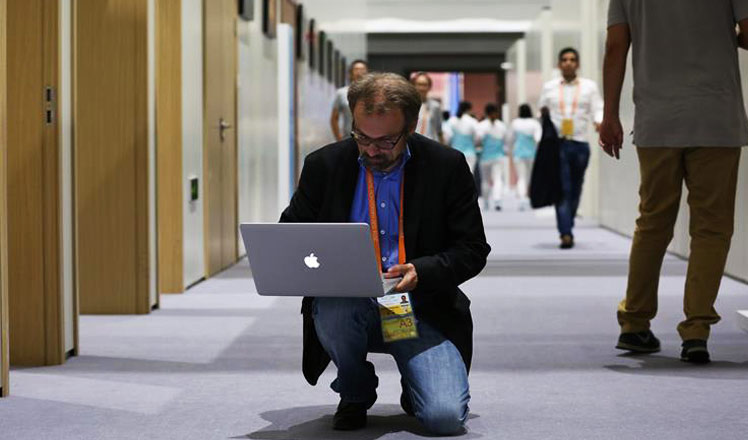
 In pics: Journalists cover G20 Summit in Hangzhou
In pics: Journalists cover G20 Summit in Hangzhou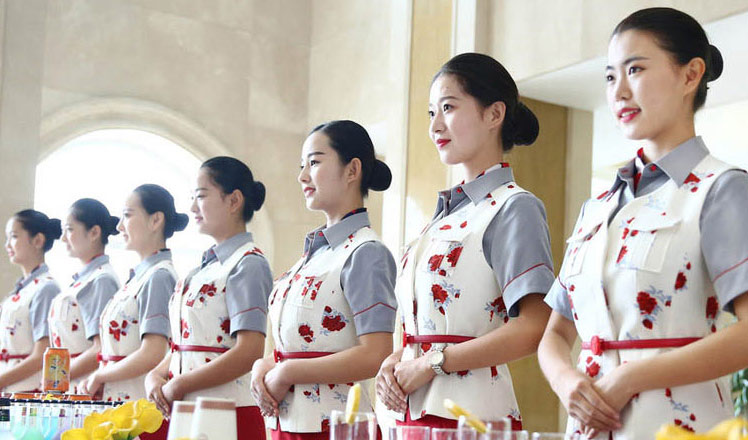
 Air attendant 'incubator' welcomes freshmen
Air attendant 'incubator' welcomes freshmen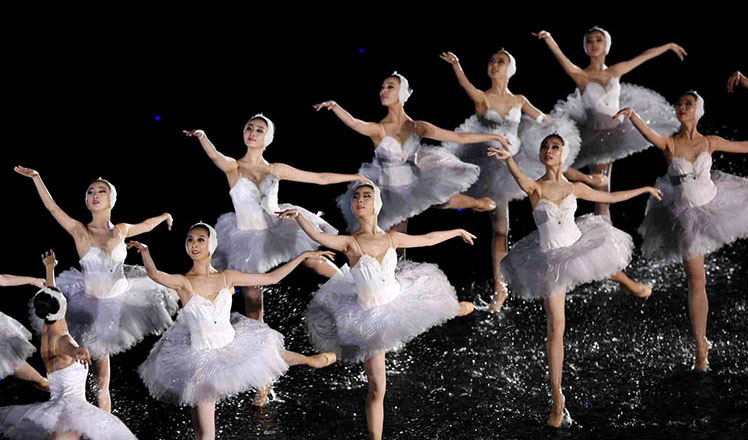
 Evening gala for G20 summit held in Hangzhou
Evening gala for G20 summit held in Hangzhou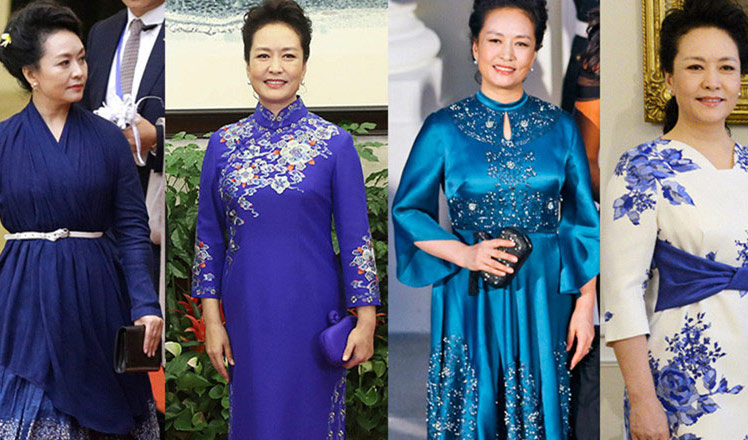
 First Lady fashion: Rhapsodies in blue
First Lady fashion: Rhapsodies in blue
 Hangzhou: A city of bridges in East China
Hangzhou: A city of bridges in East China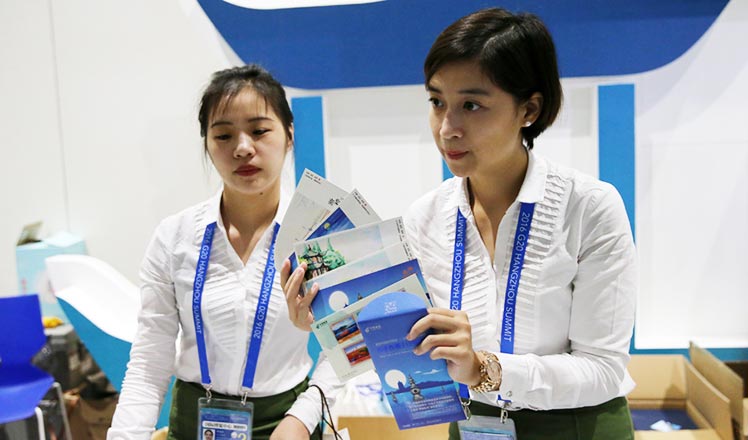
 Commemorative G20 stamps a hit at media center
Commemorative G20 stamps a hit at media center
 Ten photos from around China: Aug 26- Sept 1
Ten photos from around China: Aug 26- Sept 1
 Hangzhou: Paradise for connoisseurs of tea
Hangzhou: Paradise for connoisseurs of tea
Most Viewed
Editor's Picks

|

|

|

|

|

|
Today's Top News
Trump outlines anti-terror plan, proposing extreme vetting for immigrants
Phelps puts spotlight on cupping
US launches airstrikes against IS targets in Libya's Sirte
Ministry slams US-Korean THAAD deployment
Two police officers shot at protest in Dallas
Abe's blame game reveals his policies failing to get results
Ending wildlife trafficking must be policy priority in Asia
Effects of supply-side reform take time to be seen
US Weekly

|

|








